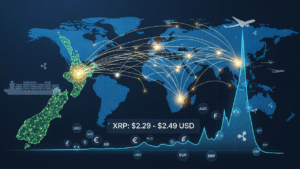COLOMBO, Sri Lanka (AP)—Thought to have escaped the turmoils of war and terror, Sri Lanka was caught off guard on Easter Sunday after a series of eight coordinated bombing attacks on churches and hotels during Easter Sunday Mass, leaving over 290 people dead and over 450 people injured.
In what appears to be the worst chaos the South Asian island nation has seen since its bloody civil war ended a decade ago with the Tamil Tigers, this coordinated attack seems to be the work of religious extremists.
With a population of 21 million people, the eight explosions forced the country to go under complete lockdown, believing Sunday’s events to “certainly [represent] acts of terror,” said Manisha Gunasekera, high commissioner of Sri Lanka to the UK.
The Intelligence Memo
According to CNN, an intelligence memo had circulated 10 days prior to Sunday’s attack, warning of a possible attack, raising questions as to whether more preventative measures could have been taken.
A copy of the memo can be seen below:
April 11, 2019
Director/ Ministerial Security Division
Director/ Judicial security division
Director/ Retired presidents security Division
Acting Director/ Diplomatic security Division
Acting Director/ Retired presidents security DivisionINFORMATION OF AN ALLEGED PLAN ATTACK
Reference to the letter of the defence ministry with regard to the above and the statement of IGP dated 2019.04.09 ref : STAFF05/IGP/PS/OUT/2860/19,
2. We would like to draw your special attention to the a page no 2 to 4 of the statement of the State Intelligence service stating that information has been received regarding an alleged plan of suicidal attack by the leader of ‘ Nations Thawahid Jaman ‘ Mohomad Saharan .
3. According to information of that statement ,would like you to give special attention and inform your staff to provide special security measures to the areas covered by your division.
Priyalal Dissanayake
Deputy Inspector General of Police
Defense Minister, Ruwan Wijewardena, described these blasts as a terrorist attack by religious extremists. With seven suspects already in custody, nobody has officially claimed responsibility behind the attacks.
“Serious action need to be taken as to why this warning was ignored,” Sri Lanka’s Minister of Telecommunications, Harin Fernando, tweeted along with a photo of the memo. The document, titled “Information of an alleged plan attack,” is dated April 11 and signed by the Deputy Inspector General of Police, Priyalal Dissanayake.
Prime Minister, Ranil Wickremesinghe, fears Sunday’s attacks could trigger instability in the country and its economy, which has peacefully enjoyed a conflict-free nation since the end of its civil war with the Tamil Tigers.
Deja-Vu With the Tamil Tigers
Sri Lanka has a long standing history with Christianity. This coordinated terror attack brings the island nation back to the days of its 26-year-long civil war against the Tamil Tigers, a rebel group from the ethnic Tamil minority, which sought independence from ethnic Sinhala Buddhist majority Sri Lanka.
Sunday’s attacks recalled the worst days against the Tigers, when the Tigers and other rebels set off explosions at Sri Lanka’s Central Bank in downtown Colombo, a busy shopping mall, which has served as an important Buddhist temple.
The Easter Day attacks looked as if the targets were Catholic worshippers, most whom were attending Easter Mass.
Breaking Down the Attacks
In total, the eight sites of explosions on Sunday included:
- St. Anthony’s Shrine—Colombo
- St. Sebastian’s Church—Negombo
- Zion Church—Batticaloa
- Cinnamon Grand—Colombo
- Shangri-La Hotel—Colombo
- The Kingsbury Hotel—Colombo
- Near Dehiwala Zoo—Dehiwala-Mount Lavinia
- Safe-house—Mahawila Gardens, Dematagoda
Colombo: The Capital
The first wave of attacks, which consisted of six explosions struck early during Sunday’s Easter Mass services at Sri Lanka’s biggest city and capitol, Colombo. These six blasts toppled ceilings and blew out windows of a famous Catholic church in Colombo, the capital, and at three luxury hotels.
Negombo
The next two attacks occurred at St. Sebastian Catholic Church in Negombo, a majority Catholic town north of Colombo, where footage showed people dragging the injured out of blood-spattered pews. The same was said for the Protestant Zion church in Batticaloa.
The deadliest of the attacks are believed to be at St. Sebastian’s Church in Colombo. Father Edmond Tillekeratne, social communications director for the Archdiocese of Colombo told news reporters that there were at least 30 bodies lying within the area of destruction.
Estimating to be more than a thousand people coming to the Church for Easter Sunday, he described the ground as covered in rubble and shattered glass.
“You can see pieces of flesh thrown all over the walls and on the sanctuary and even outside of the church,” he added.
The Church posted pictures of destruction inside its grounds on its Facebook page, begging for help from the general public. The images are extremely graphic and show blood on pews and across the floors.
Dematagoda
The final blasts went off at a suspected safe-house in Dematagoda, where three police officers were killed while conducting their investigation. As police officers moved into the city, at least two more blasts occurred, with the occupants of the safe-house allegedly blasting those explosives to avoid arrest.
Batticaloa, Kochcikade, and Strucken Hotels
Subsequent attacks were also targeted at the churches residing in the cities of Negombo, Dematagoda, and Batticaloa. One of the explosions occurred at St. Anthony’s Shrine, a Catholic Church in Kochcikade, Colombo, a known tourist landmark.
Early in the afternoon, police reported two more explosions, one at a hotel near the national zoo in the Dehiwela area near Colombo, with the other explosion at a safe-house in Colombo.
The three hotels that were struck were the Shangri-La Colombo, Kingsbury Hotel in Colombo, and the Cinnamon Grand Colombo.
Pope Francis condemned the attacks during his Easter Sunday address in Rome, offering his condolences to “the victims of such cruel violence.”
“I learned with great sadness the news of the serious attacks that, today, on Easter they brought mourning and pain to some churches and other Sri Lankan hangouts,” he said.
“I wish to show my affectionate closeness to the Christian community, hit while gathered in prayer, and to all the victims of such cruel violence. I entrust to the Lord those who have tragically been lost and I pray for the wounded and all those who suffer because of this dramatic event.” moment of silence for prayer.”
With over nine foreign nationals dead, the Government has issued a nation-wide curfew.
Government Temporarily Shuts Down Social Media
Prime Minister, Ranil Wickremesinghe called a national security council meeting at his home later in the afternoon, calling for the government to shut down social media.
“I strongly condemn the cowardly attacks on our people today. I call upon all Sri Lankans during this tragic time to remain united and strong,” he said in a Tweet.
“Please avoid propagating unverified reports and speculation. The government is taking immediate steps to contain this situation.”
“The decision to shut down Facebook and Instagram, according to Sri Lankan government officials, has been to prevent the spread of false news reports that began circulating across social media earlier this morning.
The Presidential Secretariat added that until the investigations into the explosions were concluded, social media would continue to be temporarily shut down.
May Justice Be Brought Upon Sri Lanka
Sti Lanka’s minority Christian community looked to be the main target of Sunday’s attack. Christianity, a minority religion in the country, accounts for less than 10% of the total population of 21.4 million.
The United States offered its heartfelt condolences to the Sri Lanka community, as U.S. President, Donald Trump tweeted out the country’s willingness, readiness, and ability to help:
U.S. Ambassador to Sri Lanka, Alaina Teplitz also has offered her condolences over Twitter and the U.S.’s intention to stand behind Sri Lanka during these horrid times:
While nobody has claimed responsibility for Sunday’s terror attacks, as of now, seven people have been placed under arrest, according to Defense Minister, Ruwan Wijewarden.
Out of Sri Lanka’s total population of approximately 22 million, 70 percent are Buddhist, 12.6 percent Hindu, 9.7 percent Muslim, and 7.6 percent Christian, according to the country’s 2012 census.
We will continue to provide updates to this article as they are obtained.
*Monday, April 22, 2019: According to a U.S. official, initial intelligence indicates that the group responsible for the attacks in Sri Lanka was inspired by ISIS. However, no group has claimed responsibility for the attacks. To date, four US citizens have been killed, though it’s unknown as to whether the US death toll included the two dual US-UK nationals who were among the eight UK nationals confirmed dead.








